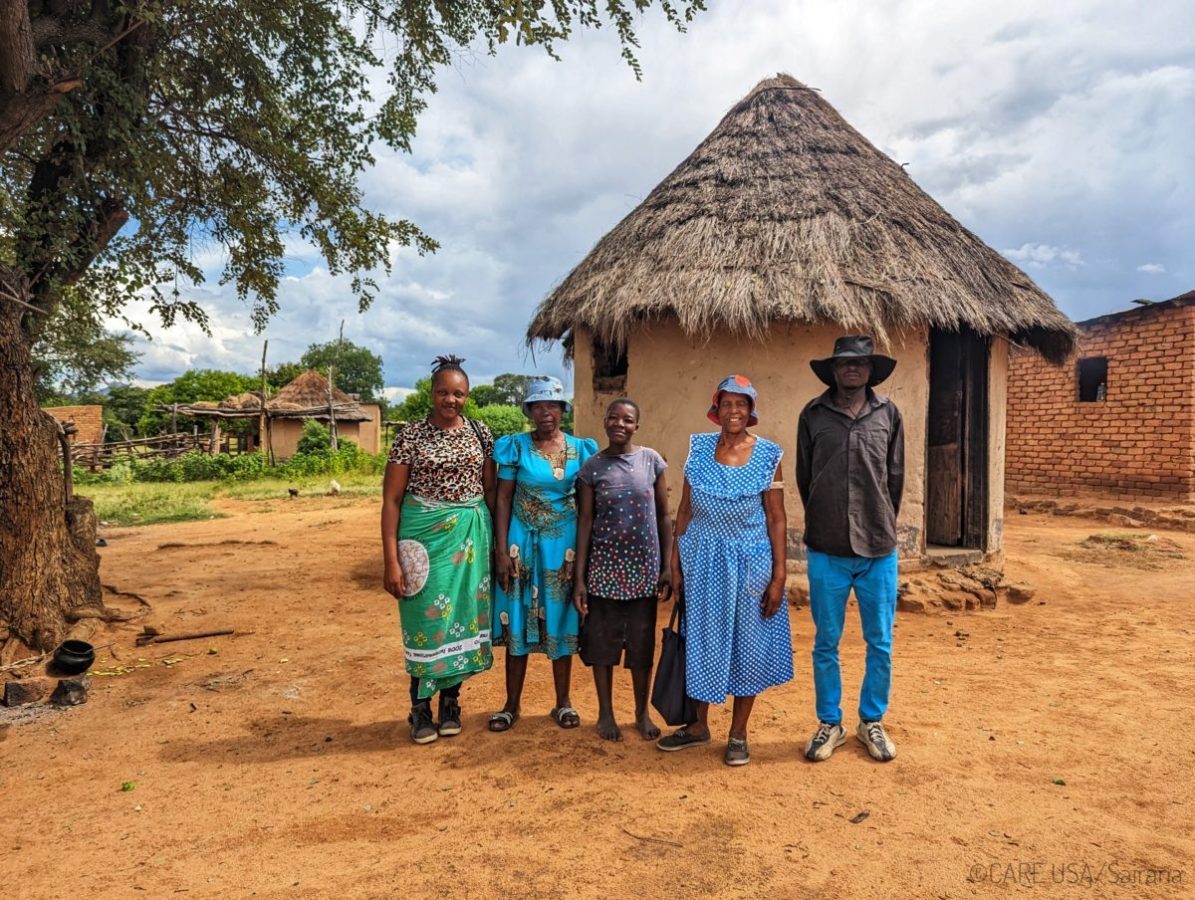Improved Quality of Life for Ngonya Village Households Participating in the USAID Takunda VSLAs
Representatives of households who are a part of at least 5 VSLA groups in Ngonya village, Ward 12, Mutare, Manicaland Province, availed themselves (amidst the rains and busy farming season). They met with USAID Takunda and CARE USA staff to share their experiences. It was an eye-opening engagement that provided insights into how their lives improved because of participating in the VSLAs and how their groups are growing as other community members realize the positive change.
Written By: RUMBIDZAI MATEMBA-MUTASA
Ngonya village is widely a small-scale farming community near the Marange Irrigation Scheme. “When the USAID Takunda staff came to our village, we joined the village savings and loan association (VSLA) training since we did not know how to participate in them. We were trained, and now we have the knowledge, and we possess the certificates that show that we underwent training. We are grateful that USAID Takunda collaborated with educational institutions that gave us the certificates,” said a participant.
Takunda, meaning “we have overcome” in Shona, is a $55M five-year (October 2020 to September 2025) USAID/BHA-funded Resilience Food Security Activity in Zimbabwe. The primary goal of Takunda is to achieve “Sustainable, Equitable, and Resilient Food, Nutrition, and income security in Manicaland and Masvingo provinces of Zimbabwe.” The program is being implemented by CARE together with partners: Bulawayo Projects Centre (BPC), Environment Africa (EA), Family Health International (FHI360), International Youth Foundation (IYF), and Nutrition Action Zimbabwe (NAZ).
Before joining VSLAs, members of this community shared that they struggled financially. Some of the shared financial hurdles included the inability to secure basic food and household items (like cooking pots, water carriers, and warm blankets for the winter season), failure to pay school fees, incapability of securing agricultural inputs and pesticides, difficulties finding manure for gardens, no productive assets, and no savings. One participant narrated the extent of the hurdles, “My financial struggles were bad; I remember that I was able to get soap to bathe children only when going to school and to wash their school uniforms only. I have ten children in my care, so I could not afford all their school fees; they are in primary and secondary school. I made them take turns going to school. For instance, those sitting for crucial examinations would go to school that year while the rest stayed at home, and so on. This is what I could afford.”
Now, VSLAs are a source of income for many households. First, they can afford basic food and household items and are not going hungry. Second, they can afford to pay school fees for their children. Some write up payment plans for school fees in agreement with school principals, and they meet their obligations. Third, acquiring agricultural inputs is easy since they have ready savings. USAID Takunda partnered with Arda Seeds (Private) Limited. This is a wholly-owned subsidiary of the Agricultural and Rural Development Authority, a Parastatal under the Ministry of Lands, Agriculture, Fisheries, Water, and Rural Development. Some VSLA group members were selected as agents to sell seeds for Arda, while they bought some for use. They are, therefore, able to earn some extra income.
Fourth, many households have small livestock like goats and chickens and are obtaining manure for gardens from livestock pens. Those participating in VSLAs can afford to dress well, and their social status is enhanced.
Asked if they would continue to engage in VSLAs, most households said they would because they were satisfied with the benefits. One elderly woman explained that her group had grown by two members. “We will not stop participating in VSLAs because we are generating incomes and have learned to care for each other. We support each other’s income-generating activities like banana selling, pot selling, vegetable selling, livestock selling, blanket selling, etc. Each group has a goal, and we need to achieve our goals. Supporting each other will ensure that we all make it.”
The group members also shared the key things that they learned. “I learned that with sufficient guidance and knowledge, we can earn a decent livelihood through VSLAs income invested as capital into income generating activities. We did hear about VSLAs, but we did not participate in them because we did not understand what they are, how to do them, and why they are important. Consequently, we struggled financially. We now know we engaged in them and overcame those financial struggles.” For some groups, monthly contributions per member increase as agreed, suggesting growth. Besides their monthly contributions, which range from USD1 to USD10 per group member, some groups have a social fund that assists members in case of an emergency. One group said it sets aside USD1 per monthly member for this social fund. Households are also keen on getting USAID Takunda support in creating linkages with financial institutions and the private sector.
To date, 10,261 individuals have been reached in VSLAs by USAID Takunda, and these are 8317 adult women, 1944 adult men, 1005 young women, and 334 young men. Thus, the participation of women is 81%, against male participation of 19 percent. The program continues to use male engagement during men’s fora to sensitize men on the benefits of VSLAs and targets technical vocational education training (TVET) graduates to view VSLAs as a source of income which they can, in turn, invest into IGAs in which they apply their skills and create employment for themselves.
Written By:

